Intelligence Ministry agents raided a number of Baha’i homes in Tehran, Isfahan and Kerman and arrested 16 Baha’i citizens on February 16 and 17.
Though eleven of the 16 detained have now been released, the arrests are the latest in a systematic campaign of brutality against the Baha’is, Iran’s largest minority religion.
And, although Jewish and Christian Iranians also face persecution on a regular basis, because, as Iranian human rights lawyer Shirin Ebadi has pointed out, “religion-based discrimination is woven through many Iranian laws,” Baha’i communities are often subjected to even greater restrictions and harassment.
Baha’ism, which emerged in the mid-19th century and has over 300,000 followers in Iran, is seen as a threat to Iran’s ruling authorities, despite the religion’s central tenets being non-violence, equality, and universal education. The recent raids and arrests demonstrate that the government has no intention of halting its persecution of the community — Baha’is continue to be arrested, tortured and denied their basic rights, including the right to study at university.
On Friday, February 27, Rainn Wilson, Andy Grammer, Ellis Hall, Justin Baldoni, and a number of other talented musicians and actors will present and attend Education Is Not A Crime Live 2015 in Los Angeles, an event to highlight a campaign started by the Iranian-Canadian journalist Maziar Bahari to raise awareness about the exclusion of Baha’is from Iran’s higher education system.
Anyone can show their support for the campaign by recording a video of themselves saying that “education is not a crime” on their smartphones and uploading to the online recording page.
Mark Ruffalo, an activist and actor, famous for his role in Hollywood blockbusters such as “Hulk” and “The Avengers,” was the most recent high-profile person to pledge his support.
The Education is Not A Crime campaign is inspired by Maziar Bahari’s documentary film, To Light a Candle, which tells the story of the Baha’i Institute for Higher Education (BIHE), set up in 1987 as a response to the Baha’is’ exclusion from higher education. It currently offers several university-level courses in various subjects. Through interviews, exclusive secret footage shot by citizen journalists, rare archival material and letters written by Baha’i prisoners currently in jail, the film shows how, through non-violent resistance and educating their youth, a small minority has defied brutal systematic religious persecution. The film focuses on the lives of two brothers, Kamran and Kayvan Rahimian, both BIHE graduates and committed teachers. Their father, Rahim Rahimian, was imprisoned, tortured and killed by the regime at the beginning of the Islamic Revolution for sheltering other Baha’is and for failing to convert to Islam. The brothers have committed themselves to promoting knowledge and the BIHE — despite their family traumas. Both are currently in prison.
When it was set up, the BIHE began offering classes in peoples’ homes and via correspondence — it was the only way that young Iranian Baha’is could study. But in 1998, and again in 2011, authorities raided hundreds of homes that served as BIHE classrooms and confiscated books and computers used for instruction. Thirteen Baha’is are currently in jail because of their work as BIHE teachers or students.
Last year, there were a number of violent attacks against Baha’is — including the murder of Attaollah Rezvani and the savage knife attack on Ghodratollah Moodi and his family. Authorities failed to pursue the perpetrators. Violence against the Baha-is goes back a long way – since the faith emerged in the mid-18th century — and has become worse at significant moments in Iran’s history, including during the early days of the Islamic Revolution. More than 200 Baha’is were executed in its first five years, and hundreds were tortured. Mahmoud Ahmadinejad’s presidency saw an increase in discriminatory propaganda and arrests. Hundreds were detained during his eight-year term. Bahai’s were also targeted during the 2009 Green Movement; authorities insisted that they were to blame for the unrest. Under Ahmadinejad, it was revealed that Ayatollah Khamenei had ordered government agencies to monitor the activities of Baha’is and identify members of the faith.
And, as last week’s arrests illustrate, despite President Hassan Rouhani’s promises of a freer society, the Iranian regime continues to see the Baha’is as a threat that needs to be addressed with force. Recently, when asked why Baha’is were banned from education, one Iranian MP said, “we cannot allow the enemies of Islam into Islamic universities. You will try to convert others.”
Authorities deny that they target the faith and its leaders, but the recent crackdown, coupled with prison sentences handed down earlier this month to six Baha’is in Yazd, Tonekabon, Arak and Kerman, clearly contradicts this claim. Baha’is in Shiraz and Gorgan have also faced recent harassment and arrests.
“At about 5pm on Monday, February 16, intelligence agents carrying camcorders raided a Baha’i religious gathering being held at the home of Sasan Yadegar in Tehran’s 10th district,” a Tehran resident told IranWire. “ The agents searched the house thoroughly, and interrogated six people in separate rooms in the house. During the raid, all books, photographs, religious symbols, computers, tablets and cell phones of those present were seized.”
According to the same Tehran source, agents carried out similar raids on February 16, at the home of Sasan Yadegar’s brother, Ehsan Yadegar. On February 17, authorities raided the homes of Safa Forghani and Arghavan Eshraghi, seizing computers and religious books, and arresting Forghani and her father, Mehrdad Forghani, at his home in the nearby town of Varamin. Yadegar was summoned to the prosecutor’s office and later released.
Intelligence Ministry agents carried out similar arrests and raids in Kerman, southeastern Iran and in Isfahan, one of Iran’s most visited cities.
The eyewitness suggested the Isfahan clampdowns were part of a coordinated operation in the city. “On the same night and at the same time, agents went to the homes of two other Baha’i citizens and, after searching the premises and seizing computers and religious items, they arrested Koosha Rahimi, Peyman Atefi and his wife Shiva Aghsani. The agents refused to delay the arrest of one of the parents for a few hours so that he or she could take their young daughter, who was left by herself for the night.”
For several days, the families of those arrested in both Tehran and Isfahan were not informed of the charges against their loved ones or their whereabouts. According to judiciary officials, those arrested in Tehran are now at the prosecutor’s office at Evin Prison, but charges are yet to be formally issued. Officials said the Isfahan prisoners were being held “in the city,” which families have assumed refers to the detention center behind Dastgerd Prison. One of those arrested was Negar Sobhanian, who is pregnant.
Though most of those arrested have now been freed, Iranian authorities have sent a clear message: They will continue to terrorize Baha’is, and they will continue to target one of the faith’s most cherished values: the right to education for all.
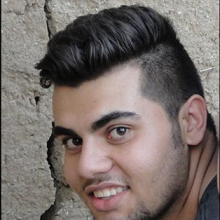
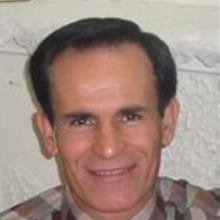
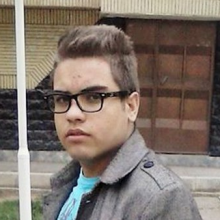

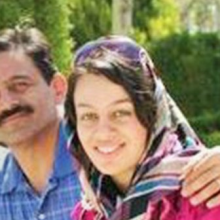

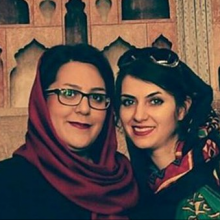
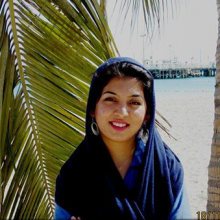
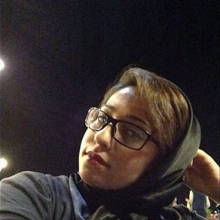
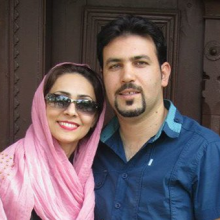
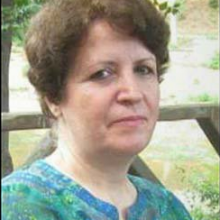
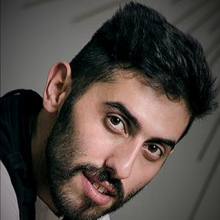
March 3, 2015 9:23 pm
The Islamic Government of Iran is fighting a loosing battle from day one in 1979. They are embarrassing the entire Iranian population, and their rich history. in the sight of the world with their deceitful and ignorant policies and Human Rights abuses. The IRI is destroying the noble name of true Islam and Shia religion. No civilized person on this planet has any respect for them.